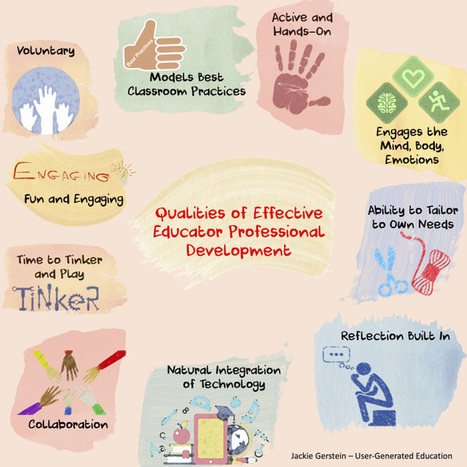"Most administrators and teachers believe in the importance and value of professional development. Sadly, though, too many teachers believe that those mandatory, one-size-fits-all professional development sessions offered by their schools are a waste of time and money. "
Via John Evans



 Your new post is loading...
Your new post is loading...










